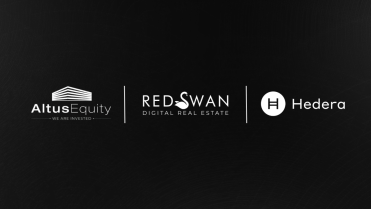The world around us keeps getting smarter. Technology has allowed us to connect with our devices and each other in new ways. These
efficiencies are slowly making their way into commercial real estate, but the emphasis is on “slowly.”
Not only have commercial mortgage and real estate companies been traditionally slower to embrace trends and technology, but they also can be notoriously stingy about keeping operations and strategies close to the vest. This makes sense, given how much competition there is in the space. But these industries need to evolve. They need to embrace demands for more transparency and more efficient technological practices. One of the ways they will likely evolve is through the use of blockchain technology.
Although blockchain is most closely associated with bitcoin and cryptocurrency, it has several potential uses in commercial real estate finance. Some technologists and industry analysts believe that blockchain will one day thoroughly disrupt the market, creating an entirely new way of investing in real estate. A warehouse, a shopping center, or an office asset could be routinely tokenized within a new blockchain-enabled digital market, with shares of the property bought and sold like a publicly-traded company.
Aside from this futuristic possibility, blockchain has numerous applications in traditional real estate transactions that involve straight debt financing. In the coming years, blockchain commercial real estate could greatly expand access to property information across the country, creating a more open and less fractured commercial real estate market. Blockchain commercial real estate also can be used to help investors make better decisions about their assets, as well as by lowering costs while speeding up due-diligence and closing processes. The traditional commercial mortgage broker shouldn’t fear the coming of blockchain, but they should follow its evolutionary progress carefully as the technology enters the commercial real estate mainstream. In the coming years, lenders will likely integrate blockchain into their underwriting and origination systems. Blockchain also may one day become a standard way for brokers and their investor clients to find and evaluate properties.






